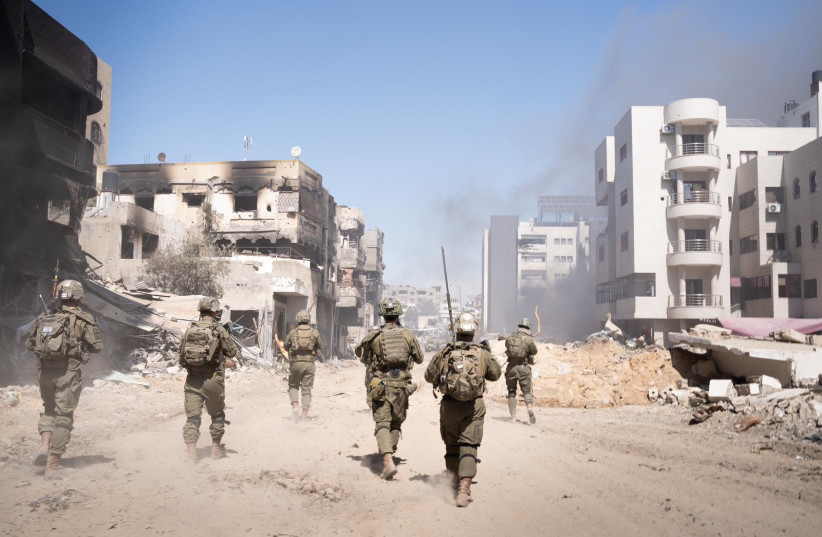Terrorist attacks leave a trail of innocent victims in their wake. This is not a fictional scenario but a very real threat that could escalate if the Hamas terror organization is not defeated by Israel.
It is crucial to understand that this path towards global instability is influenced by actions and rhetoric from many Western nations, including bodies such as the United Nations and democratic nations such as France, UK, and even the US. Despite their support for Israel, these nations often misunderstand the irrational enemy Israel is facing, exacerbating the already fragile situation.
For instance, in anticipation of a potential attack on Israel in Rafah, France and Qatar issued a statement expressing their opposition to any such assault and advocating for the opening of all crossings into the Gaza Strip.
On a separate occasion, British Foreign Secretary David Cameron urged Israel to ensure the flow of humanitarian aid to Palestinian civilians in Gaza, cautioning that failure to do so would constitute a breach of international law. Similarly, US President Joe Biden issued a warning, declaring that an Israeli incursion into Rafah, Hamas’s last stronghold, would cross a “red line.” Additionally, Canada opted to halt arms sales to Israel following a non-binding vote in the House of Commons.
Hamas leader Ismail Haniyeh’s statement from March 26 during his visit to Tehran, a day after the United Nations Security Council voted for a ceasefire, indicates it best. Israel is “losing political cover and protection even in the Security Council.” This sentiment reflects the front page of The Economist’s March 23 issue: “Israel Alone.” It’s a perplexing scenario: How does a nation that faced a surprise attack, suffering the most barbaric assaults since the Holocaust, find itself cast as the aggressor, bearing blame for the suffering of Palestinians? Should Israel be faulted for defending its civilians while endeavoring to secure the release of Israeli hostages and safeguard Palestinian lives? These are the same civilians left unprotected by Hamas.

Fighting an enemy who respects no moral lines
This is an asymmetric war against an enemy that does not hesitate to use any means to achieve its goals. Hamas intentionally positions itself and acts from within the civilian population, utilizing civilian facilities like schools and hospitals. It does so for two reasons. Firstly, Hamas knows that Israel does not intentionally target civilian infrastructure or population. Secondly, Hamas aims to cause a large number of casualties among the Palestinian population.
Reasonable individuals may ask how it is conceivable that the same population Hamas claims to represent is the very one it waits to harm? The truth is the Palestinian population holds little interest for Hamas. Instead, in the era of globalism, Hamas exploits the widespread visibility of war by circulating images of dead Palestinians to influence public opinion and pressure Israel. It cynically exploits civilians as a simple means to its ends.
This sentiment is echoed in the statement of Hamas official Mousa Abu Marzouk, who declared that the underground tunnels were not constructed for the civilian population’s benefit but solely for terrorists to launch attacks.
He also highlighted the fact that “Protecting Gaza civilians is the responsibility of the United Nations and Israel.” This strategy seeks to prompt calls for humanitarian aid and ceasefires, jeopardizing strategic diplomatic relationships, including that between the US and Israel – escalating an already tense situation.
How can the international community negotiate with Hamas for the release of Israeli hostages? Hamas consistently demands in exchange the release of terrorists with blood on their hands.
Shockingly, among these individuals are those previously released from Israeli prisons who went on to committed further acts of terror. This pattern was evident in the exchange for Gilad Schalit in 2011 when Israel freed 1,027 prisoners in return for one Israeli soldier, illustrating the high cost of such deals.
Hamas’s abduction of innocent Israeli civilians, including children, women, and the elderly is leverage for their demands.
Despite this, Hamas refuses to release the hostages unless Israel agrees to a comprehensive ceasefire. Can any sovereign nation risk the safety of its citizens by acquiescing to such terms, potentially leading to future massacres?
Why does the international community not demand the unconditional release of the hostages, instead of prolonging he conflict by tying it to humanitarian aid, which is often hijacked by the terrorists?
Failure by global leaders to recognize Israel’s battle against an irrational adversary resistant to conventional diplomacy threatens to unleash a surge in global instability fueled by escalating terrorism.
Yet, there remains an opportunity to avert this perilous outcome through a strategic shift, targeting Hamas leaders at their core vulnerabilities: survival, Arab respect, and financial backing.
It’s imperative to shift the narrative to underscore Hamas’s failed agenda and prioritize support for Israel in its justifiable struggle. Israel’s isolation in the international arena only serves to further Hamas’s aims, leveraging international pressure for a ceasefire.
By standing firm with Israel, affirming its adherence to international norms despite challenges, not only does the international community combat terror but also uphold global stability. The repercussions of Israel’s downfall would extend far beyond its borders, with jihadism posing a direct threat to European nations and the United States.
Leaders must recognize that Israel stands as the final bastion against a global onslaught of terrorism.
The writer is a senior researcher at the International Institute of Counter-Terrorism (ICT), Reichman University, and an Israel and visiting fellow at Yale University. On LinkedIn @ Dr. Liram (Stenzler) Koblentz
